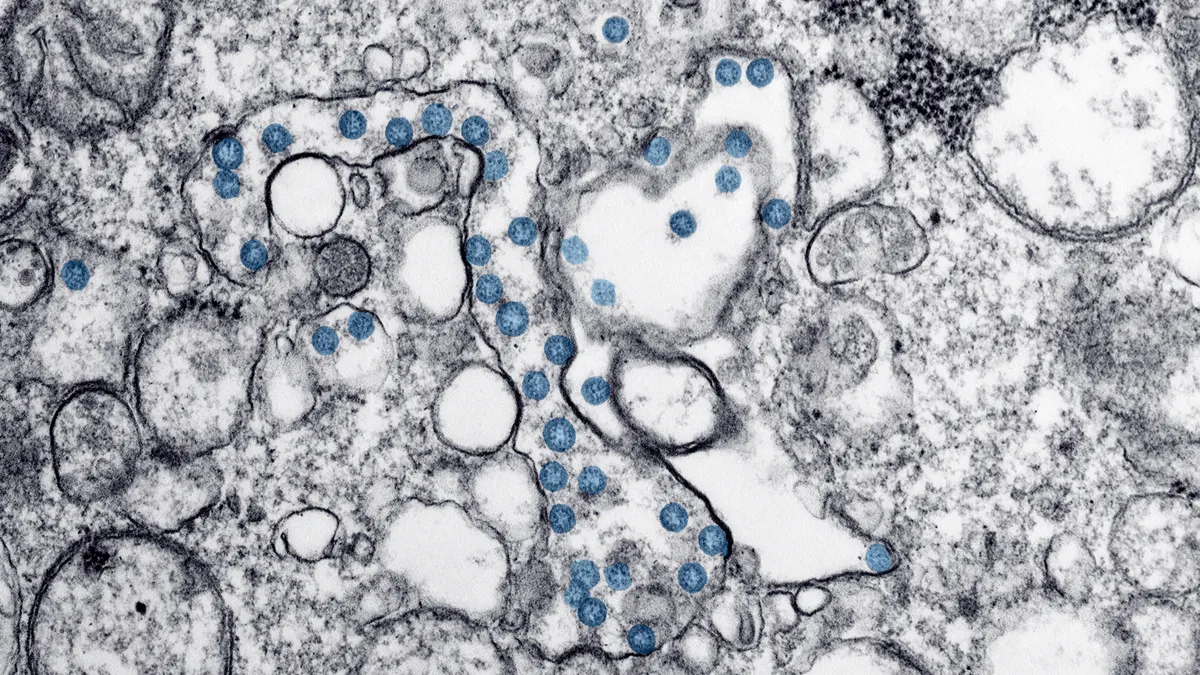Dive Brief:
- FDA has identified "several" essential medical device manufacturing facilities in China that are being adversely affected by the COVID-19 outbreak, according to an update shared by the agency Thursday. But Commissioner Stephen Hahn said the disruption in China has yet to result in reported shortages of essential medical devices.
- That assessment is based on FDA contacting 63 manufacturers that run 72 Chinese facilities producing essential medical devices for sale in the U.S.
- However, FDA reminded stakeholders that no law exists requiring device makers to proactively notify FDA, or respond to requests for information regarding potential supply chain disruptions. The agency's 2021 budget justification proposes increased authority to require transparency from manufacturers on product shortages.
Dive Insight:
The globalization of medical device supply chains and, in particular, the emergence of China as a major manufacturing center means disruptions on the other side of the world can affect access to products in the U.S.
Aware of that risk, FDA responded to the coronavirus outbreak by identifying Chinese facilities that manufacture medical devices for the U.S. market. It also said it's communicating with hospitals, group purchasing organization and others in the medical supply chain.
Responses to the virus, including the quarantining of workers, are creating "workforce challenges" at several facilities, Hahn said. None of the challenges have caused a reported product shortage in the U.S. as it stands, but FDA continues to monitor the situation.
Device shortages could also arise due to higher demand for certain products, such as surgical gowns, gloves and masks. Hahn said FDA has heard reports of "increased market demand and supply challenges" for some products but hasn't learned of "specific widespread shortages."
It is possible device shortages are happening without FDA's knowledge. While drug manufacturers need to tell FDA about disruptions that could cause a shortage, U.S. law places no such obligation on the medical device industry. FDA's 2021 budget request proposes changes to notification requirements and related issues that FDA thinks will allow it to "promote the continued availability of devices of public health importance."
Among those potential changes: the authority to allow "temporary importation" of devices in the event potential harm from a lack of access to that type of device outweighs the importance of compliance with U.S. regulatory standards.
Senator Josh Hawley, R-Mo., introduced legislation on Thursday that would require manufacturers report "imminent or forecasted shortages of life-saving or life-sustaining medical devices to the FDA." Akin to drug shortages, that information would be included in FDA's annual report to Congress.
Further, the legislation would allow FDA to ask essential device manufacturers for information on manufacturing capacity or sourcing of component parts. It would also enable the agency to expedite review of essential devices requiring premarket approval if a manufacturer anticipates a shortage.
Efforts to monitor the device supply chain are taking place in parallel with a push to prepare the U.S. to detect cases of coronavirus. On Thursday, CDC revised its guidelines on when to test people for the coronavirus to encourage more widespread testing.
A problem with one of the three reagents in the CDC test kit has in some cases led the test to deliver inconclusive results. CDC is working to send out a new version of the test but in the interim has collaborated with FDA to create a protocol that enables labs to test for coronavirus using the two functioning reagents.
The Association of Public Health Laboratories thinks around 40 public health labs could soon begin testing using the two-reagent protocol. In light of the CDC test rollout issues, earlier this week APHL asked FDA to allow state and local public health labs to create laboratory-developed tests.
As of Friday morning, the CDC test that FDA awarded emergency use authorization on Feb. 4 remained the only diagnostic with that designation, but other commercial test developers have been working with FDA on their own potential submissions.










